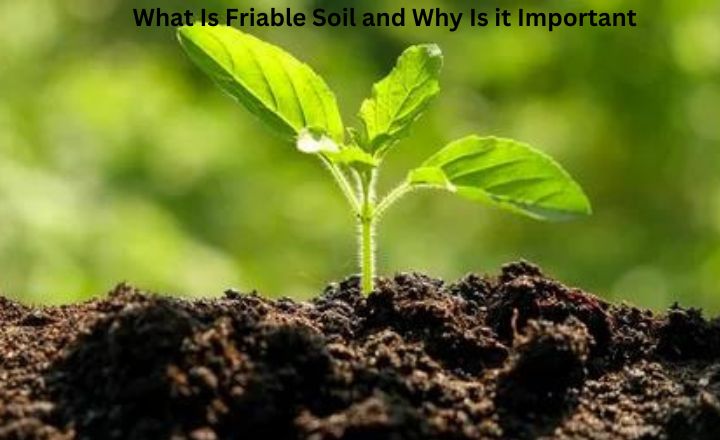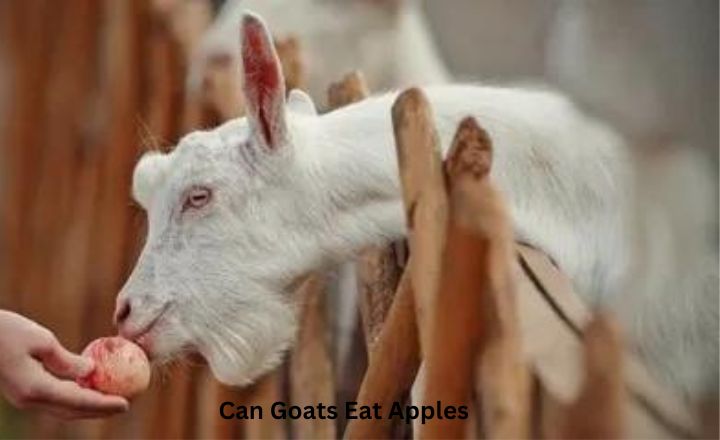What Is Friable Soil and Why Is it Important?


What Is Friable Soil and Why Is it Important? Friable soil is easily crumbled or pulverized, typically due to its high organic matter content and good structure. This soil type is crucial for healthy plant growth, allowing it to penetrate easily, access nutrients, and promote strong root development.
This leads to better nutrient uptake by plants and increased productivity in agricultural settings. Gardeners and farmers often strive to maintain friable soil through techniques such as composting, crop rotation, and minimal tillage practices to ensure optimal conditions for plant growth.
Understanding the significance of friable soil can lead to more sustainable farming practices and healthier ecosystems overall.
What Is Friable Soil?

Friable soil is a gardener’s dream, characterized by its crumbly texture and ease of cultivation. This soil type is light, loose, and well-draining, making it ideal for plant roots to penetrate deeply without obstruction.
Friable soil promotes optimal air circulation and water retention, creating a healthy environment for plant growth. One important benefit of friable soil is its ability to prevent compaction, which can restrict root growth and reduce nutrient uptake.
By maintaining this loose structure through regular cultivation and organic matter incorporation, gardeners can ensure their plants’ long-term health and productivity. Friable soil is the foundation for a thriving garden ecosystem where plants can flourish with minimal effort from the gardener.
What Is Friable Loam Soil?

Friable loam soil is a gardener’s dream, known for its excellent drainage and moisture retention capabilities. This type of soil has a crumbly texture that makes it easy to work with, allowing roots to penetrate easily and plants to establish strong root systems.
Friable loam soil is rich in nutrients, making it ideal for growing various plants and vegetables. One of the key benefits of friable loam soil is its ability to prevent compaction, which can hinder root growth and nutrient uptake.
By maintaining good structure and porosity, this type of soil promotes healthy microbial activity in the ground, leading to better overall plant health. Friable loam soil is easy to amend with organic matter, such as compost or mulch, further enhancing its fertility and productivity in the garden.
Why Is Friable Soil Important?

To make friable soil, incorporate organic matter such as compost or aged manure. This helps to improve the soil structure and increase its friability. Avoid compacting the soil by not walking on it when wet, as this can lead to poor aeration and drainage.
Cover crops like clover or legumes can help improve soil texture and create a more brittle environment for plant growth. Add perlite or vermiculite to the soil mix to enhance aeration and drainage. If you like Bull vs. Buffalo, here are the Differences & Comparisons.
How To Make Friable Soil?
To make friable soil, incorporate organic matter such as compost or aged manure. This helps to improve the soil structure and increase its friability.
Avoid compacting the soil by not walking on it when wet, as this can lead to poor aeration and drainage. Cover crops like clover or legumes can help improve soil texture and create a more brittle environment for plant growth.
Add perlite or vermiculite to the soil mix to enhance aeration and drainage. Implementing these methods lets you transform your hard, compacted soil into a crumbly, flaky texture, promoting healthy root growth and plant vigour.
What Plants Grow In Friable Soil?

Plants that thrive in friable soil, characterized by its crumbly texture and easy cultivation, include a variety of vegetables such as carrots, radishes, and lettuce.
These plants benefit from the loose structure of friable soil, allowing their roots to penetrate easily and access essential nutrients. Herbs like cilantro and basil also appreciate the well-draining qualities of friable soil, promoting healthy growth and robust flavours.
One interesting aspect of growing plants in friable soil is the reduced risk of root rot or water logging due to its excellent drainage properties. This allows for better aeration around the roots and prevents water from pooling around the plant’s delicate structures.
Gardening in friable soil offers an opportunity to cultivate diverse plant species successfully with minimal effort and maximum results.





